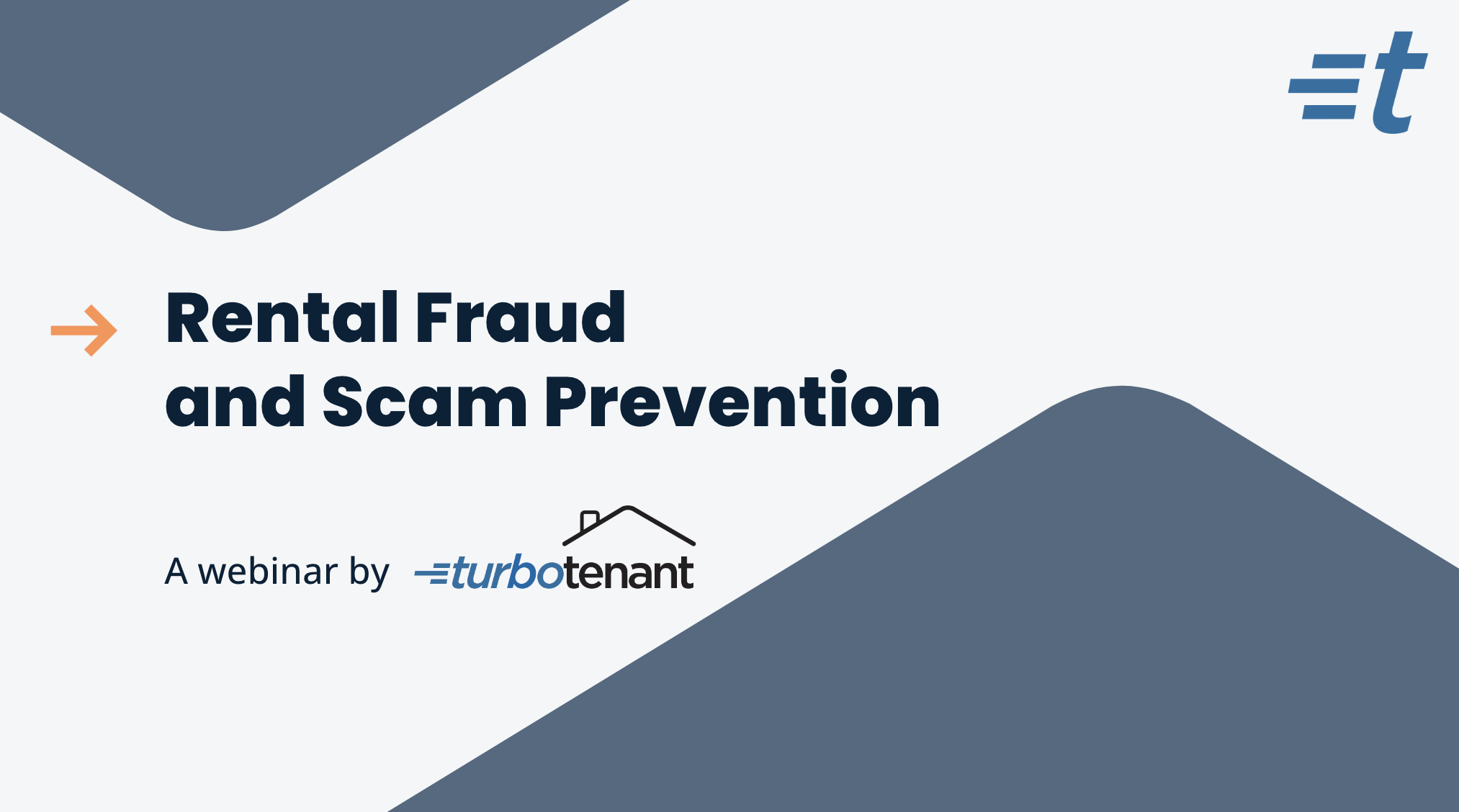Emotional Support Animals (ESAs) Webinar
Join us for an engaging webinar on emotional support animals (ESAs) hosted by Krista Reuther. This session will delve into the legal complexities of ESAs, the Fair Housing Act, and practical advice for landlords navigating the evolving landscape surrounding ESAs.
Key Takeaways
- Introduction and Interaction: The webinar opens with an introduction to the topic of emotional support animals (ESAs) and encourages interactive participation through polls and chat. The host, Krista Reuther, outlines the session’s goal to educate landlords on the complexities of ESAs and legal responsibilities.
- Emphasis on Legal Education: The discussion emphasizes the importance of understanding legal frameworks surrounding ESAs, particularly the Fair Housing Act. This includes addressing common misconceptions and explaining landlords’ obligations and rights.
- Polls and Audience Engagement: The webinar features polls to gauge audience knowledge and perspectives, fostering a dynamic learning environment. This interactive approach helps tailor the discussion to the audience’s level of understanding and specific needs.
- Complexities of ESAs: The session dives into the nuanced differences between ESAs, service animals, and pets. It covers scenarios landlords might face, such as handling tenants with ESAs in no-pet properties, dealing with allergies and damages, and understanding the impact of ESAs on insurance and community rules.
- Practical Advice and Case Studies: The webinar provides practical advice on verifying ESA letters, handling tenant requests, and navigating situations where ESAs may affect other tenants. Case studies are discussed to illustrate these points in real-world contexts.
- Resource Sharing and Follow-Up: The hosts share resources for further learning, such as links to relevant courses and legal guidelines, and promise to send a recording of the session for further review.
Top questions asked by the audience:
What about ESAs that are on the insurance company’s dangerous breed list? How does that work?
If your insurance company has a list of dangerous animals, I would go to them and say, “Hey, I have this tenant. They’ve submitted an ESA housing letter, and it looks legitimate. How would this impact my premiums? If it impacts them unduly and would cause a lot of fees or otherwise they would cancel your insurance, you can then return to the tenant and say, “Hey, unfortunately, I can’t accept this because there are undue business ramifications based on the cost that I would incur by accepting your animal.”
What about when you are in an HOA community where they don’t allow farm animals?
The HOA probably has to abide by the Fair Housing Act as well. Generally speaking, a properly vetted ESA housing letter is going to supersede any kind of rules that are in the HOA. Have a conversation with them, bring them the letter that your tenant brought you, and assess if it’s a reasonable accommodation.
I have an eight-unit building, and a tenant has an emotional support dog. It constantly barks all night long, and I receive multiple complaints. The other tenants cannot sleep. I’m allowed to evict based on this after multiple warnings. She constantly is threatening to sue because the dog is an emotional support dog. I’m going to lose seven other tenants to accommodate her.
Document everything when you receive complaints. Talk to the tenant with the ESA and try to work together to find a solution. If there’s a documented history of not addressing the behavior, you can start the eviction process with a notice to remedy the issue or vacate the premises. Consult a real estate attorney to ensure everything is done properly.
Is it possible to request that the ESA be neutered and spayed? Can you enforce a rule that requires an ESA to be kenneled when the tenant is not present?
No. You cannot request either of those things or force them. You don’t have jurisdiction over how they kennel their pet. You can relay concerns about damage, but you can’t enforce rules about how they keep their pet.
Do online ESA letters have to be accepted?
If they have all of the qualifying criteria, then yes. HUD has not passed something that says you cannot use an online ESA letter. Ensure the letter has a license number, professional letterhead, and all necessary components.
Where in the application process should the tenant inform you they have an ESA? My tenant told me a week before moving into my no-pets-allowed unit.
Tenants don’t have to inform you until they are required to provide the letter. You can ask if they have any pets to start a conversation, but you can’t specifically ask about ESAs.
I have two questions that are somewhat related, although not exactly the same. Is it possible to request that the ESA be neutered and spayed? Additionally, can you enforce a rule that requires an ESA to be kenneled when the tenant is not present?
No. You cannot request either of those things, or at least you can’t force them. You don’t really have much jurisdiction over how they kennel their pet or don’t kennel their pet.
Does it matter if you own the property as an LLC or do you have to be on the deed personally? I think that’s relating to the exemptions.
In my research, it didn’t mention the business structure at all impacting whether or not you have to follow the FHA. So, I don’t think it holds weight either way. Check with your local real estate attorney for state-specific laws.
Can we require documentation of vaccines for an ESA?
You can request them, and if they push back, ask why. Explain that it’s a reasonable request for the health and safety of others.
Does the tenant have to ask for permission to bring an ESA in before bringing it on site, or are they allowed to bring the animal on site and then provide the ESA letter?
They should provide the ESA letter first. If they don’t have an ESA letter and you have a no pets policy, then they’re in violation of their lease.
Can you give a few examples of a reasonable accommodation?
Examples include a removable insert in a sliding door for a doggy door, building a patio or having an outdoor space for an animal. Reasonable accommodations are typically paid for by the tenant.
Can we require a picture of the pet for filing purposes?
You can request one, and most pet owners or ESA owners would likely be happy to provide a picture.
What if the ESA lashes out and causes physical harm to another tenant, staff member, etc.?
Depending on the severity, you can send a cure or quit notice or begin legal proceedings to remove the animal. The owner is responsible for any damages caused by their ESA, not the landlord.
My tenant said she has a pet before moving, but after moving, she said she had ESA. It took her three to four months to get an ESA letter. Isn’t that kind of weird?
If they don’t have an ESA letter, you don’t have to treat the animal as an ESA. There could be valid reasons for the delay in getting the letter.
What if you own a three-bed, three-bath unit and lease to each roommate individually and one of the other tenants is allergic?
If the allergy significantly impacts the health and safety of the other tenant, you could assert that accommodating the ESA is not reasonable.
Tenant with one ESA brought in a second animal. She did not inform me until a few months later. She did not provide documents for the second animal, although she says it is an ESA. If I believe the unit is too small for both animals, is she in violation of the lease?
If she didn’t provide an ESA letter for the second animal and you have a no pets policy, she is in violation of the lease. It’s rare to have more than one ESA.
Can we require the animal to be up to date on shots and have any required licenses?
You can request it, especially if it’s a requirement of the local jurisdiction. Check with a local attorney to ensure compliance with local laws.
What happens when the ESA dies? Does the tenant have to get another letter if they get another ESA?
If they are changing breed or species, it’s valid to request a new letter. If they replace one ESA with another of the same kind, a new letter may not be necessary. Consult with an attorney for specifics.
Can a tenant live on the property for years, purchase a dog, and then go to a medical doctor to get a letter stating that she needs the dog as an emotional support animal? If the letter came after I gave her a 30-day notice, what should I do?
If she was in violation of the lease before providing the notice, you are not obligated to accept the ESA. The letter should have been provided first.
Is it legal to simply ask if the tenant has any animals?
Yes, it’s legal to ask if the tenant has any animals.
Can we request that the animal be up to date on shots and have any required licenses?
Yes, you can request that the animal be up to date on shots and have any required licenses.
Can we request documentation of vaccines for an ESA?
You can request documentation of vaccines for an ESA.
Can a tenant live on the property for years, purchase a dog, and then go to a medical doctor to get a letter stating that she needs the dog as an emotional support animal? If the letter came after I gave her a 30-day notice, what should I do?
If she was in violation of the lease before providing the notice, you are not obligated to accept the ESA. The letter should have been provided first.
Transcript ▼
Krista Reuther:
Feel free to keep chatting in the chat. We love that.
A couple of notes right at the top: As you can see at the bottom of my screen, this webinar will be recorded, and we will email it to you afterward. So, look in your inboxes; come Monday, we should be able to fire that off by then.
And as I mentioned earlier, please use the chat to interact amongst yourselves. We also have a Q&A feature. So, if you have questions that pop up, feel free to submit them there. We will make sure to take some pauses throughout the presentation so we can address some questions. Additionally, we will have a Q&A portion at the very end. So, don’t be shy; we love questions.
Speaking of things we love, we have the incredible Samantha here with us today. She is my wonderful co-host and our landlord experience expert. And I think I mangled your title, so if you want to correct me, please feel free.
Samantha Yadav:
It was so close. It’s “landlord experience specialist.” Yeah, but I’m also an expert, so, you know, it kind of works out; it’s interchangeable there. Beautiful.
Krista Reuther:
Alrighty, I am Krista Reuther. I am the senior content marketing writer here at TurboTenant. We are very excited to chat with you about emotional support animals.
So, at the very, very top of this, I just want to acknowledge that ESAs are a complicated subject matter, right? They are obviously challenging for landlords because there’s a lot of trying to figure out what you can do, what policies you have to change, fee structures, things of that nature. It can feel like you are up against a system that was not designed for you to succeed as it pertains to ESAs.
On the flip side, there are about—I think it’s 63.5 million Americans with mental or emotional disabilities. So that’s about one in four. ESAs really do serve a need for your tenants. We’ll help you understand how to navigate this and make sure that you’re not being taken advantage of while still honoring the need that these folks have.
Without further ado, Samantha, I shall turn it over to you for our first poll.
Samantha Yadav:
Yeah, so we’ve got some questions just to kind of see how everybody’s doing with emotional support animals and to understand a little bit more about you as landlords.
So, we’d like to know:
- How many rental units do you owner-manage?
- Have you attended a TurboTenant webinar before?
- Do you have a TurboTenant account?
And then we’ve got a multiple-choice selection there to know:
What is an emotional support animal?
That’ll give us a little tip on who you are as an audience, and we can see who knows what an emotional support animal is.
Krista Reuther:
Well said. So please go ahead and click through this poll. It’ll be fast, it’ll be fun, and you will already start learning, which is really exciting. Alright, we’ve got people trickling in. Very exciting. Thank you.
Samantha Yadav:
Got some love for sparkling water going on in the chat. Heck yeah.
Krista Reuther:
I only like one brand of sparkling water because I’m a snob. It’s called Sparkling Ice. I highly recommend it. Yeah, very fancy.
Alright, folks, we’ll give you five more seconds if you are looking to participate in this poll, which we really would like you to do. Click on through. It will not take but a moment. Okay, that’s five. I think.
So, here is the spread of who we have in the mix today. We’ve got a lot of newer landlords with smaller portfolios, which we love to see, as well as some who have more than 11 properties in their portfolio. Fantastic. Glad to see some newbies to the webinars as well, and folks who have a TurboTenant account are outnumbering those who don’t, which is wonderful.
As for this last one, we have three choices, and most of you got this one right. An emotional support animal is an animal that is protected by the FHA, the Fair Housing Act, and it does not have to receive specialized training. So, we’ll explain what those other two statements relate to because there are quite a lot of animals that you should know about as a landlord. Beautiful. Okay.
Samantha Yadav:
Yeah, so today we’re going to have a few key takeaways from the presentation. You can see here, we’re going to talk about:
Knowing the difference between emotional support animals (ESAs), service animals, and companion animals.
The crucial key to knowing what is not an emotional support animal.
An ESA can be registered at any time before or during the tenancy, regardless of your lease agreement.
We’re also going to talk about, in order to protect your business, you can ask for an ESA housing letter and verify that it meets the required federal and state qualifications.
And then also, it’s important to know that ESAs serve a real need, and it is challenging to navigate the system. So, hopefully, we’ll give you some tips on how to do that and be more informed. Absolutely.
Krista Reuther:
Well said. So, to start this off, let’s look at some unusual emotional support animals. Here are real-life examples that people have made their emotional support animals:
Many donkeys
Ferrets
Bearded dragons
A peacock (that is Wally the alligator)
Hedgehogs
So, it’s not just cats and dogs. There are no breed restrictions, which we will say a few times, and there are also no species restrictions. That said, you do not have to house an emotional support elephant, and we’ll tell you why later on in the presentation.
So, why do you have to care about this? Well, there are a few reasons:
You’re a landlord and you are providing housing, and you are undoubtedly going to have either a potential applicant or a tenant bring this to your attention where you need to know what to do. Otherwise, you could risk significant fees.
For example, there was a case in 2019 in Colorado, where I live, and Samantha does as well, where a landlord tried to assess an additional fee for their tenant’s ESA. That is not allowed, and HUD (the Department of Housing and Urban Development) agreed that this is not allowed, this is a fair housing violation, and it ended up costing the landlord $1 million. So, that’s not an easy charge that most landlords can just wipe off the books. And in fact, it could lead to your business falling apart. So, it’s really important that you understand your responsibilities as a landlord, but also how to protect your business, just in case there’s an ESA letter that comes through that is invalid and something.
Welcome to the Menagerie. We are going to break down some of the different types of animals. As Samantha said, what is crucial to know is not only what an ESA is but what it is not. To make sure you know the terms, we will go through.
So first, an ESA provides therapeutic companionship. They usually assist owners who have some kind of mental or emotional disability. Typically, you would see it for depression, anxiety, post-traumatic stress disorder, things of that nature. These are things that you cannot visually assess. You cannot look at a tenant and say, “Well, you are depressed,” or at least not often. So, that is why the system is in place to make sure that there is some kind of process to bring in an emotional support animal.
Also, as you will see here, they do not require special training. You cannot require them to get special training to live in your property. So, while there are no breed qualifications and they do not have to have special training, you also have to be able to actually take care of the animal, you being the tenant. It has to be reasonably accommodated in a home and disturbance-free. What does that mean? Well, drawing back to our elephant example, an elephant could not be reasonably accommodated for in an apartment. So, you could turn down an elephant ESA based on the grounds that it wouldn’t be safe for the animal and it wouldn’t be really pleasant for the downstairs neighbors. They also have to be disturbance-free. So, in this context, that means that barking is one thing, but if a dog is lunging at others, if it causes an injury, if it threatens somehow the safety of other tenants, it could be reasonably disqualified as being an ESA in your property.
Then there are service animals. Service animals are typically dogs and miniature horses, although there are helper monkeys as well that can get the special qualification. And you’ll note that I said special qualification. These types of animals have to be trained. They serve a specific purpose. So think about seeing-eye dogs or perhaps a dog that gets in the way of someone having a seizure so they don’t hit their head on the ground. These animals are well trained. They typically have some kind of marking or vest, something to let others know that this is not a pet. This is not an animal that should be approached and, you know, given all the scritches in the world, they are doing a job. And that is one of the big things that separates them from emotional support animals.
Another separation between these two types of animals: ESAs are protected by the Fair Housing Act. Service animals are protected by the Americans with Disabilities Act or the ADA. Two completely separate acts of legislation. And that’s important to keep in mind because, again, they are not the same, but sometimes people use the terms interchangeably when they should not, including your tenants. It’s likely that they might not have the same knowledge base here. So it’s really important to know the difference and ask good questions.
You will note, though, that both of these folks, folks being animals, serve their owners. And that is something that differentiates them from therapy animals. A therapy animal usually has to have some kind of special training. There aren’t really breed restrictions that I could find in my research. Think about equine therapy where the person who needs the therapy travels to the horses and goes and enjoys it there. Similarly, therapy animals are in hospitals, hospice centers, things of that nature, and they serve someone else who is not their owner. They are not there to provide support for their owner.
And of course, the last type of animal, probably the one you’re most familiar with, is a companion animal or a pet. They don’t need special training. And this type of animal can fall under your pet policies without any kind of issue. This is your typical pet, typical pet experience. So you can collect the pet fee, pet deposit, pet rent, what have you, without violating any laws.
ESA is made E-A-S-E. Well, that’s why I know how to spell. Before we go into it, are there any major questions in the chat that we should attend to?
Samantha Yadav:
Yeah, so we have a question asking, what about ESAs that are on the insurance company’s dangerous breed list? How does that work?
Krista Reuther:
Such a good question. So we will touch on this later. But if your insurance company has a list of dangerous animals, I would go to them and say, “Hey, I have this tenant. They’ve submitted an ESA housing letter, and it looks legitimate. How would this impact my premiums? If it impacts them unduly and would cause a lot of fees or otherwise they would cancel your insurance, you can then return to the tenant and say, ‘Hey, unfortunately, I can’t accept this because there are undue business ramifications based on the cost that I would incur by accepting your animal.'”
That’s one of the rare spots where the breed can impact the ESA process. But again, you are going to be asked to work with the tenant and try to find a solution. So it’s not as easy as just saying, “Well, they’re on the list, get them out of here.”
Samantha Yadav:
And then we have another, what about when you are in an HOA community where they don’t allow farm animals?
Krista Reuther:
That’s a great question. I would say that the HOA probably has to abide by the Fair Housing Act as well.
Generally speaking, a properly vetted ESA housing letter is going to supersede any kind of rules that are in the HOA. So, once again, I would go to them and have a conversation, bring them the letter that your tenant brought you. Also, make sure that if it’s a farm animal that makes sense, that there’s plenty of room for it. They know that, right?
There’s a big difference between having a raging bull in your backyard and your single unit, versus a miniature donkey, right? So, it’s going to be a case-by-case basis, and you really have to assess all these different variables to make sure that you are not unduly violating the Fair Housing Act.
Samantha Yadav:
We’ve got one more. You want it now or you want to hold on?
Ooh, let’s take it. Let’s go.
All right. Bree says, “I have an eight-unit building, and a tenant has an emotional support dog. It constantly barks all night long, and I receive multiple complaints. The other tenants cannot sleep. I’m allowed to evict based on this after multiple warnings. She constantly is threatening to sue because the dog is an emotional support dog. I’m going to lose seven other tenants to accommodate her.”
Krista Reuther:
Well, yes, that’s indeed a tough situation. In cases like that, and in many others, documentation is key when you’re a landlord. So, when you receive a complaint from another tenant for the first time, it’s a good idea to ask them to put it in writing. Request all the possible details, like, “I’ve been hearing barking from 11pm to 3am, and it’s affecting my sleep.” You’d then keep that record and, without disclosing the source, talk to the tenant with the emotional support animal. You’d approach them and say, “I’ve been getting complaints. How can we work together to find a solution?” It seems like you might be further down that road if you’ve already had similar conversations. At that point, once there’s a documented history of not addressing this behavior, you should be able to start the eviction process. Sending a notice to remedy the issue or vacate the premises is the way to go. Even if it’s not related to an ESA, tenants are still obligated not to cause disturbances. So, you can handle it that way. But I’d also recommend involving a real estate attorney to make sure you’re not missing anything and that everything is done properly.
Alright, let’s talk about ESAs and what they mean for your rental business. We’ve touched on this a bit with the questions, but essentially, individuals with disabilities can request to keep an animal in your unit, regardless of your pet policies. You can’t refuse these accommodations if they’re reasonable. However, there are some housing providers who don’t have to follow the FHA. But even though, and this is worth repeating, we highly recommend following the Fair Housing Act. It generally keeps your business on the safe side. So, who doesn’t have to follow it? Well, those with owner-occupied buildings of four units or less. For instance, imagine I’m a landlord named Krista. I own a building with four individual living units. I live in one, and there are three others for tenants. In such cases, you wouldn’t have to follow the Fair Housing Act. Similarly, housing run by private clubs or religious groups that only accept members are also exempt. Lastly, single-family homes sold or rented by the owner without a real estate agent’s involvement don’t have to comply. But this gets a bit tricky. You see, real estate agents are bound by their license to adhere to the Fair Housing Act. That’s why if they’re involved in any way, you’re more or less obligated to follow it too. So, if you bought a property privately, didn’t use an agent, and now you’re renting or selling, you might not have to follow the Fair Housing Act. But in situations like this, it’s best to consult a real estate attorney first. Making a mistake here, or if an agent somehow gets involved, it could be quite costly. So, it’s something to keep in mind before you establish any strict rules for your property. These are the exceptions to the FHA.
So, that leads to the question: If you’re required, or rather, allowed, to accept reasonable accommodation requests, what exactly is a “reasonable accommodation”? Well, it’s a request made by or on behalf of a disabled person, and it needs to be supported by reliable disability-related information. We’ll get into this later, but it’s basically the ESA housing letter I mentioned in some of my previous answers. You don’t have to accept all accommodation requests, but you should at least consider them. It’s actually a good practice to approach these requests with empathy and compassion. Keep in mind that the person is sharing their disability with you. They’re saying, “Hey, I have this need.” Even if you look at them and think, “You don’t seem depressed,” that’s not the right way to approach it. It’s more about collaborating to find a solution, rather than being on opposing sides.
So, when might you be excused from following such a request? Well, if the request is overly burdensome, whether financially or administratively for your business, or if it fundamentally changes the core nature of your business, you’re not obliged to accommodate it. For instance, if accommodating an animal from a restricted breed list would make your insurance premiums skyrocket to a point where you can’t afford it, that’s a valid reason to explain to the tenant that you can’t accept their animal due to these insurance concerns. Of course, make sure you have proper documentation and can prove that you genuinely looked into it. The worst thing you could do is get a request like this from a tenant and then simply dismiss it. You need to do your due diligence, look into it, and also review their documentation, which we’ll touch on later. Also, if the request involves an animal that would directly threaten the safety or health of others, or could lead to significant property damage, that’s a valid reason to decline the accommodation request. For example, the case of Wally the Alligator being considered a service animal raises quite a few eyebrows. If Wally’s owner had a landlord who felt uneasy, especially if other tenants had small dogs like Chihuahuas, it could be problematic. In such scenarios, you should at least make an effort to evaluate the situation thoroughly. Even if they introduce an animal that gives you pause, like a tenant with an emotional support duck. It might be surprising, but it wouldn’t make sense to deny this request due to potential safety concerns. Moreover, when it comes to property damage, consider the living space for the animal and the impact on the community. For instance, if a tenant wanted to keep a bull in their backyard but you have a third-floor apartment available, it’s evident that this wouldn’t work and could lead to property damage. In this case, you might propose a more suitable ground-floor unit with access to a backyard. This shows your intention to mitigate potential issues related to the presence of the animal on your property.
Given all these factors, how can you protect your business? First, make sure you receive an ESA housing letter. We’ll go over that shortly. Also, ensure you communicate your concerns respectfully. Aim to collaborate with your tenant on the issue. Remember, it’s a conversation where both parties are working together to address a shared problem, not a conflict between landlord and tenant. That’s not the approach you should take, and it’s not what we’re suggesting either. You can safeguard your business without turning it into a confrontational experience. We’re here to assist you with that. We’ll discuss the ESA housing letter shortly, but before we do, Samantha, any interesting updates from the chat?
Samantha Yadav:
Yeah, so, as it relates to exemption, who’s exempt from the Fair Housing Act?
Eve says, ‘I bought one unit in my name and one in my boyfriend’s name, and I manage both units remotely. Do we still qualify as exempt if needed?
Krista Reuther:
Ooh, I would say if you bought those units without the use of a real estate agent, it’s entirely possible that they are exempt. Now, they do have to be single-family houses, like single-family units. So bear that in mind – if it’s just two units in a multiplex somewhere, like that, would not be exempt. So yeah, depending on the type of housing and who was involved in the purchase, you could be exempt. I’d double-check with a real estate attorney. Yeah.
Samantha Yadav:
And then another one on the exemption.
What happens if the owner uses public media to attract tenants? I thought as soon as they use the newspaper or the internet, they were subject to all FHA equal housing and ADA.
Krista Reuther:
Ooh, that’s such a good question. I would say, no, I haven’t found that anywhere in my research. Now, I will say though, you want to be careful with how you market and list things. Obviously, you can’t violate the FHA. It would be a really bad idea to say no to emotional support animals, even if you fall into one of the exemption categories.
But no, if you are in one of the situations, such as having an open occupied building with fewer than four units, you are allowed to not accept ESAs, even if you advertise the unit online.
Samantha Yadav:
And what about HOA covenants and bylaws? Would that be considered unable to accommodate?
Krista Reuther:
Ooh, I would say it depends on the conversation you have with them. So, if I was in your shoes and I have a tenant who’s just requested an ESA, I would get their ESA housing letter. Then, I’d take it to the HOA and ask, ‘What happens if I need to allow this animal to live in my property?’ They can tell you what those ramifications would be. Because, again, my understanding is that they are also bound by fair housing laws. So, they might have to accommodate regardless of their bylaws or any kind of legislation they’ve put in place.
Samantha Yadav:
Marina says, “I have one tenant who does not walk the dog and lives on the second floor. The dog just pooped on the deck, and she washes it down to the first floor. Does that qualify as threatening the health of others?”
Krista Reuther:
You know, if the first-floor tenant has complained, I think that is a very valid reason to go talk to your second-floor tenant. Say, ‘Hey, we need to try and figure out a solution for this,’ because it’s not healthy to wash down animal excrement into the downstairs neighbor’s balcony or what have you.
If they haven’t complained, I still think you’d be able to at least have a conversation with the tenant who owns the dog and say, ‘This poses a health risk, can we find a solution?’ If they say no at that point, you can start documenting your—well, really start documenting as soon as you reach out to them. Keep a tab of everything until you have enough documentation to send a cure or quit notice, I don’t say.
Samantha Yadav:
Okay, I’ve got one more. Can you give a few examples of a reasonable accommodation?
My tenant asked that I install a doggy door in the wall. A removable insert in the sliding door was not acceptable to her. Hmm.
Krista Reuther:
Interesting situation. So, I would think that a reasonable accommodation in that case would be exactly as you said, a removable thing in your sliding glass door. Alternatively, I would say building a patio or having some kind of outdoor space for an animal might be a reasonable accommodation.
But bear in mind that reasonable accommodations are typically paid for by the tenant. So they have to request them from you, but they cover the costs. If she really wants a doggy door in the wall, she’ll have to cover the cost, and then you could—I believe you could ask her to also cover the cost of fixing it after she’s gone, unless you wanted to keep it for some reason.
Again, double-check with your real estate attorney. As much research as I’ve done, I am not an attorney of any sort. So double-check, but those would be some examples of reasonable accommodations, things like more space, doggy doors, maybe some kind of trash can outside so they can throw their dog poop in a trash can if you don’t have a trash can around the property, things like that. Yeah.
Samantha Yadav:
And then it looks like a lot of questions are coming up about documentation, which is the next section. Brilliant.
Krista Reuther:
Well, yeah. So the main piece of documentation that you need in terms of emotional support animals is going to be the ESA housing letter. The components of that should have the signature of a medical professional, social worker, peer support group, somebody who can attest to the tenant’s need for this animal. A statement about how long they’ve been working with that person and an explanation of why their emotional support animal is necessary.
Now, you’re not going to get an in-depth list of the tragedies of their life and why this dog helps, but it might say something like, “Hey, Tim tenant is requesting an emotional support animal to help with his anxiety.” And then as long as it has the signature of his medical professional and something that says, “Tim has been my patient for three years,” it is more or less a valid letter.
Additional things you should look for though, it should be on the letterhead of a professional/medical organization. And if it doesn’t have a license number on it, that is something that is perfectly valid to ask for from your tenant. That way you can look up the licensee and see their background.
So to that end, once you get that letter, you might be tempted to do a couple of things with it. For example, you can verify that the clinician exists, look up their license number as I said, or any other identifiable information. You can also do a quick Google search to see what pops up.
But with that in mind, you might be wondering, “Can I reach out to them? Can I contact my tenant’s mental health professional to verify their ESA housing letter?” Let’s take a poll. Thank you. So go ahead and answer here: Can you contact their mental health professional to verify their ESA housing letter? Give you a few seconds to fill in.
Samantha Yadav:
I think it’s important to note that reasonable accommodations are typically related to a lease agreement or a change in the documentation, whereas a modification would be a physical change. So you may have a different form or something like that filled out for reasonable modification if they are adjusting something on the premises or requesting that.
You can find out more information about what you can and can’t ask for in terms of the tenant paying for that on the HUD website, so hud.gov. Fantastic. Thanks. Yeah.
Krista Reuther:
All right. So we’ll go ahead and end this poll to share the results.
Okay. So about half of you said yes, and then some said yes. If the disability isn’t apparent, I hate to break it to you, but you are incorrect. You are not allowed to contact a tenant’s mental health professional to verify their emotional support housing, and whether one, they cannot talk to you. That would be a violation of HIPAA. They can’t mention their patient’s relationship to them or anything like that. So what you really need to do is lean on looking it up yourself insofar as using their license number to verify their existence and see more about them through that method rather than trying to reach out directly. It will not work. You will cause yourself a lot of heartache. I’m not going to talk about that. So I’m going to talk about that.
Also, you cannot ask your tenant for details of their disability. If you look at Tim tenant and you say, “Well, you don’t look like you have anxiety, prove to me that you have anxiety,” you’re going to get in trouble. Absolutely don’t do that. Remember, this is a really tender situation for lack of a better word. This person is revealing their disability to you, and any kind of prying questions, not only are those in bad taste, but also you just can’t, as a housing provider, dig in like that.
Additionally, you cannot impose breed or species or weight restrictions. And you cannot collect any fees that you might otherwise if this was just a regular pet. So that means no pet fees, no pet rent, no pet deposit. However, if there is damage when the person moves out, you can use the money from their security deposit to cover that damage. And if there’s more damage than what the security deposit covers, you can request that money as you would for any other tenant. You just can’t collect a specific pet deposit.
Okay, we’re going to move into some frequently asked questions. Then we’ll do a couple of case studies and round out with another Q&A section at the very end. Okay, frequently asked question.
Samantha Yadav:
How many years can I have?
Krista Reuther:
You—your tenant can have one ESA per person. So, through my research, I did see that if there was an additional need, the disabled tenant might request additional animals or additional accommodations, but that is really rare. So far and away, just remember one ESA per tenant.
Okay. That said, if you have four people living in a household, they could each have their own ESA. That might be a true need that they have.
Samantha Yadav:
Are there state-specific protections that apply to the Fair Housing Act regarding emotional support animals?
Krista Reuther:
Yes, there are. So, these are just a couple of the laws that have passed, but there’s a lot that’s up in the air right now, specifically in Oklahoma.
That said, California requires that tenants looking for an ESA letter have to have a client-provider relationship with their clinician for at least 30 days before that letter can be written. So that means they have to have at least two consultations as another requirement.
In Florida, you can get prosecuted if you create a, well, let me start over. In Florida, you can be prosecuted if you produce a fraudulent ESA letter or if they come with a fraudulent ESA request.
So from my research, what I’ve seen is a lot of legislators looking for ways to protect landlords and make it so that either you have to have a clinician who’s in-state or they have to have an established relationship as you see with California.
These things are on the books, but these are the top two protections that I could find that are currently active.
Samantha Yadav:
How long do I have to answer a tenant’s ESA request?
Krista Reuther:
Yeah, you have 10 days to respond to an ESA request in most states. I would say, as always, make sure that you’re up to date on your local landlord-tenant laws to make sure that there aren’t more specific timelines that you have to follow. But plan on 10 days or less.
Samantha Yadav:
What happens if I deny an accommodation request?
Krista Reuther:
Yeah. So your tenant could file a complaint with their local HUD office or another such government agency that deals with disability, and they will investigate the case as possible disability discrimination. This is again why it’s so important to have good documentation because you want to be able to say, “I tried to accommodate this request. I couldn’t for these reasons. And here’s everything that proves that.
Samantha Yadav:
What if my tenant registers their pet as an ESA after I’ve collected the pet fee or a pet deposit?
Krista Reuther:
Yeah, so in this case, there isn’t a hard and fast rule about returning any part of the deposit, but most people agree that your tenant would technically be entitled to a refund. So what folks usually do is take a look at the amount of time that the tenant has had the pet and then compare that to the time that it’ll be an ESA.
For example, let’s say Tim Tenant’s lease started on June 1, and his pet became an ESA on January 1. So most would say that you should give him back a prorated refund based on those six months. You would return six months’ worth of the deposit back to him. And in this case, you’d have a cure lease. That’s important to say. I know that’s a little confusing. So I’ll pause for a second. Any questions about this specifically in the chat?
Samantha Yadav:
Not this specifically.
Krista Reuther:
Oh, then we’ll keep going and we will circle back to the rest of those delightful questions here in a second. Yes.
Samantha Yadav:
What if the ESA lashes out and causes physical harm to another tenant staff member, etc. ?
Krista Reuther:
So depending on the severity of the issue, there are a couple of different routes you can take. If it’s something like a dog lunging but there’s no damage, I’d recommend sending a cure or quit notice detailing the situation that was complained about and what you want the tenant to do in order to rectify it; otherwise, they need to leave. Alternatively, you could begin legal proceedings to remove the animal since it’s a threat to the safety and health of others outside of the owner.
Bear in mind that your tenant is likely going to stand up for their dog, especially if they’re not trying to leave and you’re trying to get their animal to be evicted.
Also, I do want to note that if an animal in ESA causes any harm to someone else, their owner is responsible for the damages by and large. So it’s not something that falls on you as the landlord. It’s one of the greatest reasons though to make sure that you have landlord insurance and also to make sure that your renters keep renters insurance. If they have renters insurance, they can file a claim through that and get it taken care of, but it’s off your plate; you don’t have to worry about it.
All right, so we’ve got some case studies. Samantha, do you want to take this all away? I would love to.
Samantha Yadav:
So in this specific case study, we have two tenants that have applied to your rental. The first is Susie. They are 34 years old with a 750 credit score and make three times the monthly rent. They also have an ESA. The second applicant is Brent. They are 34 years old, with a 660 credit score, make three times the monthly rent, and have no ESA. So those are your two applicants. And based on this information alone, who do you rent to?
Feel free to drop in the chat. Do we rent to Susie? Do we rent to Brent? Just as Lucas says, based on who applied first and met documented criteria. Tammy says Brent and says Susie. You would have to rent to Susie, right? Depends on the type of ESA. Susie. Whoever applied first and both meet the criteria. Susie, under my criteria, I only require over 600. I would go with Brent. Whoever applied first, both qualify.
All right. Oh, there’s more. It depends on your job. With this macroeconomic condition, I really need to know what they do. Who pays first? Brent meets my credit score requirement. Would you have to demonstrate why you don’t rent to Susie if you rented to Brent and whoever applied first? Going all over the places. Absolutely.
Krista Reuther:
So the other question is can you tell Susie she doesn’t qualify for the rental based on her ESA? Feel free to drop it in the chat. Can you tell her that she cannot live in your rental because she has an ESA?
Samantha Yadav:
No, no, no. Don’t have to tell her anything. No, no, negative. No, don’t do that. Definitely not. A little blow-grain on there. Tell her the rental is no longer available. No, I have another qualifying tenant. Okay.
Krista Reuther:
So I have some thoughts on this, but Samantha, I don’t want to step on your toes. Do you want to speak to it first? I would love to hear your thoughts. My gosh, you’re so sweet.
So in this case, a lot of you had it right in the comments. It depends on who applies first and gets in everything that you need, whether that’s a security deposit or whatever else you require of all your applicants to secure an apartment. You absolutely, absolutely cannot tell Susie she doesn’t qualify for the rental because she has an ESA. You need to be fair and use your set process to rent to whoever qualifies first, and the ESA element cannot factor into that.
Also, if you tell Susie that the ESA, or excuse me, that the unit is rented or it’s no longer available when it’s still available, you’re breaking the Fair Housing Act. Luckily, we have a course that you could use to learn everything you need to know about fair housing and make sure you don’t make those kinds of mistakes. If one of my delightful friends could drop in the chat the link to our Fair Housing for Landlords course, that would be delightful. It’s all online. You can take it at your own pace, but it’ll walk you through some of these examples and other things you need to know about the Fair Housing Act to ensure that you don’t sink your business due to a silly mistake or discrimination when you’re not trying to. And don’t try to discriminate. I don’t want to underline that too. No discrimination.
Okay, have another case study for you. Let’s meet Charlie. Charlie has lived in your rental for six months of a 12-month lease, and when he moved in, he paid the $500 pet deposit for his dog Bruno. However, at the start of his six-month mark, Charlie lets you know that Bruno now qualifies as an emotional support animal. He gives you the ESA housing letter. It’s legit. It looks good. What do you do next? Feel free to drop it in the chat. Your tenant, established tenant, no issues. He has just let you know that his pet is now an emotional support animal. What do you do?
Samantha Yadav:
Ask for the letter. Give the deposit back. Scream, return partial pet deposit. Nothing different. Okay. Verify the letter. Yeah. Give Bruno a bone. Return after deposit. Ask for the qualifying letter. Return pet deposit. Verify documentation. Change lease to show pet is allowed.
Krista Reuther:
Okay. So you guys are all on the right track, especially giving Bruno a bone. That’s very cute. Yes, in this case, you would make sure that the housing letter is legit. Verify it. Look up the license number. Make sure it’s got all of the components that you need. And then you would likely go to the pet deposit and give him back half of it. You can keep half for the time that Bruno was just a dog and not an ESA. So do that.
Also, I see Eve saying there’s no way to verify the letter if you can’t call and ask if they wrote it. And I understand. So with that in mind, you can still look up the license number and each mental health professional has some kind of licensure that they fall under. So with that, you can verify that they are a practicing provider. It should also come on a professional letterhead. So you can validate that it is a real practicing person, but no, you would not be able to call them and ask them any questions about it.
You can look up a professional’s license and make sure they are in your rental state. Yes, you can. Although there are only a couple of states right now that are looking to pass legislation to say that you have to work with a provider who’s in your state or in the same state as the tenant. So tread carefully there.
Yes, there should be a date on the letter. If you don’t see one, you can go to your tenant and discuss your concerns and say, “Hey, thank you so much for sharing this with me. I have a couple of concerns that I want to discuss with you. Could you please get another letter that shows their license number and the date that it was written?”
Samantha Yadav:
I do like the idea of having the addendum. If you already have a pet addendum in place, then you can create an addendum to the lease agreement that modifies the existing pet addendum. This addendum should state that the pet is no longer considered a regular pet on the lease but is now recognized as an approved emotional support animal. Also, it’s important to note down the property rules that they must continue to follow. For instance, they would still need to clean up after the dog and observe quiet hours. Unless there’s another valid reason related to their request that prevents them from picking up after their dog, there’s no reason why they shouldn’t be able to follow these additional rules. Absolutely. Okay. All right.
Krista Reuther:
So let’s open it up to any other questions that are still remaining. Yeah, I want to emphasize here before we continue, we do not provide legal advice. It’s important to talk to your real estate attorney for specific legal guidance. However, we are happy to share the information we’ve gathered from our research. So with that in mind, Samantha, what questions do we have? Yeah.
Samantha Yadav:
Can a tenant live on the property for years, purchase a dog, and then go to a medical doctor to get a letter stating that she needs the dog as an emotional support animal? If the letter came after I gave her a 30-day notice, what should I do?
Krista Reuther:
It sounds like she could do that, but I don’t really understand why. Because if you’ve already given her a 30-day notice, she will have to move out in 30 days.
Is this, I mean, I guess I would ask if this is related to the dog. Like, did she, is her pet somehow impacting the eviction process or the termination of the lease? If so, that’s a bit stickier.
If not, then you will not be the one who has to accommodate her ESA because she will move out.
Samantha Yadav:
Where in the application process should the tenant inform you they have an ESA? My tenant told me a week before moving into my no-pets-allowed unit.
Krista Reuther:
Technically, they don’t have to inform you about their situation until the moment they are required to provide you with the letter. Nevertheless, you could take a proactive approach by inquiring whether they have any pets, though asking directly about having an Emotional Support Animal (ESA) might not be appropriate. It’s better to avoid that. Instead, you can ask if they plan to bring any pets.
Even if your rental policy prohibits pets, asking this question could lead to a conversation where they mention wanting to bring their cat, for instance. In that case, you could respond by informing them about the no-pet policy and explaining that their situation might not align with your rental policies. This way, you can guide them to look for a housing unit that accommodates pets.
Samantha Yadav:
I have two questions that are somewhat related, although not exactly the same. Is it possible to request that the ESA be neutered and spayed? Additionally, can you enforce a rule that requires an ESA to be kenneled when the tenant is not present?
Krista Reuther:
No. So you cannot request either of those things, or at least you can’t force them. You don’t really have much jurisdiction over how they kennel their pet or don’t kennel their pet.
But you could relay if you’re concerned about damage, share your concerns, and let them know. But you can’t enforce any kind of rule about how they keep their pet in their property if it’s not risking the health and safety of others.
Samantha Yadav:
Do online ESA letters have to be accepted?
Krista Reuther:
If they have all of the qualifying criteria, then yes. So HUD has not passed something to my knowledge that says you cannot use an online ESA letter. I’ve done a lot of research and talked to some real estate attorneys.
So, if it has a license number and the professional letterhead, along with all the necessary components you need to move forward, and if it can be considered a reasonable accommodation, then you can go ahead and bring them in.
Samantha Yadav:
You mentioned owners who manage their own properties don’t have to abide by ESA. After how many properties do the landlords not qualify to disqualify ESA?
So, I think maybe just touching on the exemptions again. Sure.
Krista Reuther:
Yeah. So, to be clear, just because you own and manage your own property doesn’t mean that you don’t have to follow fair housing.
So, if you have an owner-occupied building with fewer than four units and you live in one of the units, then you don’t have to follow fair housing regulations. But it’s only under those specific circumstances. For example, owning a single-family rental that had no real estate agents participating in the purchase or sale. Otherwise, you have to follow fair housing.
Samantha Yadav:
Can we require a picture of the pet for filing purposes?
Krista Reuther:
Oh, you can request one. I don’t think most pet owners or ESA owners would be hesitant to give you a picture of their pet by any means. So yeah, ask for one. They’ll probably be really happy to show them off.
Samantha Yadav:
Would it be legal to simply ask if the tenant has any animals? Yeah, absolutely.
My tenant said she has a pet before moving, but after moving, she said she had ESA. It took her three to four months to get an ESA letter. Isn’t that kind of weird?
Krista Reuther:
Well, okay, so if I sit back and think this through, it sounds like you allow pets in the unit. And then she’s saying it’s an ESA. You don’t have to treat it as an ESA until you get the letter.
There could be a variety of reasons why it takes so long for the tenant to actually produce that letter, particularly if we think back to why ESAs exist. So, let’s say that your tenant has depression and she can barely get out of bed, let alone call a mental health professional and set up getting this letter. That could explain why it took her so long.
Samantha Yadav:
What if you own a three-bed, three-back unit and lease to each roommate individually and one of the other tenants is allergic?
Krista Reuther:
Yeah, the allergy question also popped up a lot on Tuesday. So, in that case, if they are all kind of commingling, sharing spaces, and it’s an allergy that would significantly impact their life – like one where they can’t breathe – then I would say you need to consider it as a case in which you could assert, ‘Hey, this isn’t a reasonable accommodation,’ because it’s going to affect the health and safety of your fellow tenant. For instance, if they can’t breathe properly when your animal is here, this situation might not be a good fit.
Samantha Yadav:
Does it matter if you own the property as an LLC or do you have to be on the deed personally? I think that’s relating to the exemptions.
Krista Reuther:
In my research, it didn’t mention the business structure at all impacting whether or not you have to follow the FHA. So, I don’t think it holds weight either way.
But again, when in doubt, definitely talk to your local real estate attorney. There could be laws in your state, city, or county that are more specific to this matter.
Samantha Yadav:
Can we require documentation of vaccines for an ESA?
Krista Reuther:
I think you can request them. And if they push back at that point, ask why. Because it’s a really reasonable request on your end just to keep in their files.
And then if they continue to say no, I would suggest having a sit down and really discussing with them why you want that information. They should provide it to you, and that way you don’t have to bring any lawyers into the mix.
Samantha Yadav:
Does the tenant have to ask for permission to bring an ESA in before bringing it on site, or are they allowed to bring the animal on site and then provide the ESA letter?
Krista Reuther:
So they should provide the ESA letter first. If they don’t have an ESA letter and especially if you have a no pets policy, then they’re in violation of their lease.
Samantha Yadav:
So, that kind of goes back nicely into the question we were talking about with a 30-day notice. We had already given the 30-day notice, and the tenant brought the letter. So, she provided clarification. We are not pet friendly. She was in violation of her lease agreement. That’s why I gave her the 30-day notice.
Once she gave me the letter from her physician, I assumed I have to accept the dog.
Krista Reuther:
I don’t believe so that is definitely a sticky situation but she had violated the lease before she provided the notice. So she was in violation of the lease.
Samantha Yadav:
Let’s see. We might be caught up. Give me just a minute to scroll through the chat here.
I own 25 acres with three buildings along with my house. Do I have to follow these guidelines? Yes.
Tenant with one ESA brought in a second animal. She did not inform me until a few months later. She did not provide documents for the second animal, although she says it is an ESA. If I believe the unit is too small for both animals, is she in violation of the lease? Yes.
Krista Reuther:
So she didn’t provide an ESA letter for the second animal but she’s claiming that it is an ESA? Yes.
If you have a no pet policy then yes, I would think she’s in violation of the lease. And already has one ESA as well.
Ah, so then yeah. Again, it’s very rare that you can have more than one ESA.
No. So she’s in violation of the lease, and I would talk to her accordingly. Okay.
Samantha Yadav:
Someone else asked, ‘We require the animal to be up to date on shots and have any required licenses.’
I’m so sorry. Could you say that to me one more time?
Yeah. Can we require the animal to be up to date on shots and have any license required? I think that’s like the license for your county.
Krista Reuther:
Okay. So, I don’t think you can require shots. However, you could say, ‘Hey, as part of this reasonable accommodation and to protect the health and safety of the other tenants, I will, I am requesting you to go make sure that it has all of its vaccines.’
In terms of the license, yeah, I’m still confused by that part. There’s no licensure to be an ESA, but you do have to make sure they have the ESA housing letter. So you can lean on that.
Samantha Yadav:
What happens when the ESA dies? Does the tenant have to get another letter if they get another ESA? Okay.
Krista Reuther:
I would say if they’re changing breed like species, or otherwise they’re really moving in a different direction with the next ESA that they choose, I think it’s perfectly valid to request a new letter.
If they go from one dog to the next, I don’t think so. ESA letters don’t have to specify the name and breed of the animal in it. So, it really comes down to, is this causing an issue for you? Or if they’ve just replaced one ESA with another and it’s pretty much the same kind of day-to-day activity, I wouldn’t say that they need a new letter.
Again, check with an attorney; that’s definitely a great question, but I don’t think they would need a new letter unless it was a new animal. Insofar as I think it’s, yes.
Samantha Yadav:
Here’s some follow up on the licensing. Our city requires licenses for dogs. For example, I would require the dog license because it’s a requirement of the local jurisdiction. And there’s a couple comments are how many requires dogs be registered some municipalities require local registration of dogs, the city building, for example, and they get a tag.
Krista Reuther:
Gotcha. Okay, so in that case, that’s one of those times when it really pays to know your local laws. I would check with someone who’s local to you as a real estate attorney. Because, for example, here in Colorado, at least to my knowledge, you do not need to have a license for dogs, so it’s not something that comes up.
If it is something that’s bound by the county, I think it’s reasonable to ask for it. But again, check with your local attorney first. They will have more information about your county-specific rules.
Samantha Yadav:
Yeah, I’m going to go ahead and launch the final poll. But we’ve got a couple questions in here. The prospective tenant said they have an ESA in training, please address an ESA in training.
Krista Reuther:
Well, I mean, honestly, that sounds good for you. If they are training their animal in some way. Awesome. That’s not something that they have to do. If they mean an ESA in training, like they don’t have a letter for it, then that is no good. They still need to get an ESA housing letter regardless of the training status of the animal.
Samantha Yadav:
Do you have to have a tenant that is allergic living with you at the time to deny an ESA animal? I have a facility that has a common heating and air system and we don’t allow animals, mainly because of the common heating and air system and allergies of current and possible future tenants.
Krista Reuther:
No, if there’s not a tenant who would be actively harmed by the presence of the ESA, you can’t say no because there may someday be a tenant who would be harmed.
Samantha Yadav:
There’s a comment in here in Ohio that ESA letter is only valid for one year. They need to pay for a new one each year. Well, there you go.
Yeah. And got a couple in the chat asking if they’ll get a recording.
Krista Reuther:
Heck, yes, you will. So we will go ahead and send you a recording as well as this entire deck. Again, look for that in your inbox by end of day Monday. And also, when this ends, you will see a survey, one final survey where you can vote on our next topic or submit ideas that you’d like us to cover. So please do take that and let us know what you want to learn about because we love having these conversations with you.
Samantha Yadav:
And I just dropped the link in the chat again for our Fair Housing for Landlords course in case you’re interested in learning more about the Fair Housing Act and avoiding discrimination in your rental practices.
Krista Reuther:
Thank you kindly, Samantha. So thank you for your questions and looking to learn more about ESAs. It’s a challenging topic. A lot of landlords feel like they don’t get a fair rub, but it’s important to understand that the true need for ESAs and how you can protect your business, which we hope we’ve helped you learn today.
Samantha, thank you for your time. Jonathan who is invisible. Thank you for being here. We will talk to y’all later. And I hope you have a great rest of your weekend.
Source & Guest Links
- Assistance Animals
- Emotional Support Animal Laws
- Fair Housing for Landlords Course
- Landlord-Tenant Laws
- Master the Landlord-Tenant Relationship in 5 Steps
- Pet Fees, Pet Rent, and What You Need to Know About Pet Policies
- Market Your Rental Property
- Free Rental Application
- Free Rental Management Software































